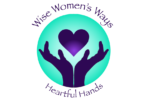I have put myself in the position I would find myself as a nearly 60 year-old woman in the First World, who discovers she has a fairly common cancer (non Hodgkins lymphoma).
In this last year, a dear friend has begun this very journey, and a sister – with breast cancer, so this topic has been close to my heart.
I have watched their fearful acceptance and their hopeful trust and adherence to the letter of what is medically done, to be done to – with no apparent thought as to why their body has shown them cancer – or “what next?”.
As the mother of children whose sometimes life-threatening issues were not helped by mainstream medicine, I will have a different approach to others: self-help in the extreme instead of handing over and passively hoping for the best.
I am the one that must live with the consequences, so I am the one to make the choices. This is not the route most people take on this journey.
I would ask myself – is the expert outside myself, or within?
Do I help my body heal after working out why it has fallen down, or do I reactively go with the supposed experts (who know not why I have this) into attack mode?
Do I see what I have done has created the cancer, or do I believe it is all a matter of bad luck, and good luck may shine if I am ‘good’ and do what I am told to diligently?
Answering these questions may determine where to head for resolution.
I have spent over 30 years assisting those in this very journey as a natural healing professional.
I have been part of many integrative, and some frankly alternative-only solutions.
This project of what steps to take on diagnosis (regardless of cancer type and stage) is coloured by my own world view and personal philosophy.
To engage in the debate of how to access information, I suspect that the state of mind and the individual’s own philosophies play a huge part. When fear overloads, and authorities seem so resolute with the choices – it would be hard to make sense of research findings in professional journals – just leave it to the experts who are paid to help seems the usual stance.
Still a seed of ‘what can I do to help myself’ though . . Looking to the article (Crystal et al, 2003) where it is stated that cancer patients more than others use some form of CAM, it seems logical to look at firstly what we are calling CAM.
What is Complementary / Alternative Medicine (CAM)?
- Changing diet?
- Starting meditation?
- Stopping toxic relationships and substances?
- Respecting natural more?
None of these can surely hurt. Maybe find a philosophy of life that helps the body work as designed, following mainly a life based vitalism.
Once deciding what CAM is, and given that chemo is the Gold Standard of care offered in the First World:
- What part does CAM play in my journey with cancer?
- Is there a case for wondering what happened for me to have contracted this condition?
- What have I contributed?
- If I stop living as I did – will I increase my chances of healing?
- Is CAM seen as a matter of popping a few pills – a way of life and a respect for the process however it looks?
This seems crucial as the argument can also progress towards the end stage of life for all, and especially with a potentially premature, unexpected hastening through potentially traumatic disease.
- Traumatic change is required.
- What/who to take as authority?
- My stepping up to self responsibility – possibly for the first time.
- Researching and not just believing the first duty of care provider of any description.
Maybe going back to prayer and reconnecting with inner guidance. No harm done there either.
Checking on line http://www.alkalizeforhealth.net/Lbakingsoda.htm there are sensible sounding natural solutions to disease – many cheap, non invasive and very simple changes one could make.
These may help address why the cancer is there and how to improve life regardless of what else is done. Pragmatic for me is about staying constructively, peaceably, happily alive.
- How to do this?
- WHAT IS CANCER?
- What end point do I want?
This depends I suspect on personal philosophy of life. What was before diagnosis is now gone forever. Maybe this is a blessing.
A new normal – do I want to be defining myself as a survivor, or a victim?
Do I want to live well in peace and happiness, or to exist in fear and moderated panic awaiting more’ bad’ news’?
Wondering what to do next – after no doubt hearing what the person diagnosing has said, most would then look online.
Starting on survival rates after 5 years for my age group . . . I asked the question and found a horrifying statistic that most quoted – all that expense and effort for … a no more than 5% increase in life after 5 years using chemo and orthodox and highly traumatic interventions offered medically.
Do I want that package – with all the side effects as the chemo and radiation try to kill the cancer before me?
What of the immune system which in falling down on the job has allowed the cancer to take hold,
- Do I really want it decimated?
- Will the treatments then kill me?
- How do I wish to live from here?
http://www.curenaturalicancro.com/oncologists-criticize-chemotherapy.html
If you read this, you will have a new appreciation of why I have posted this assignment.
It horrified me to read this.
